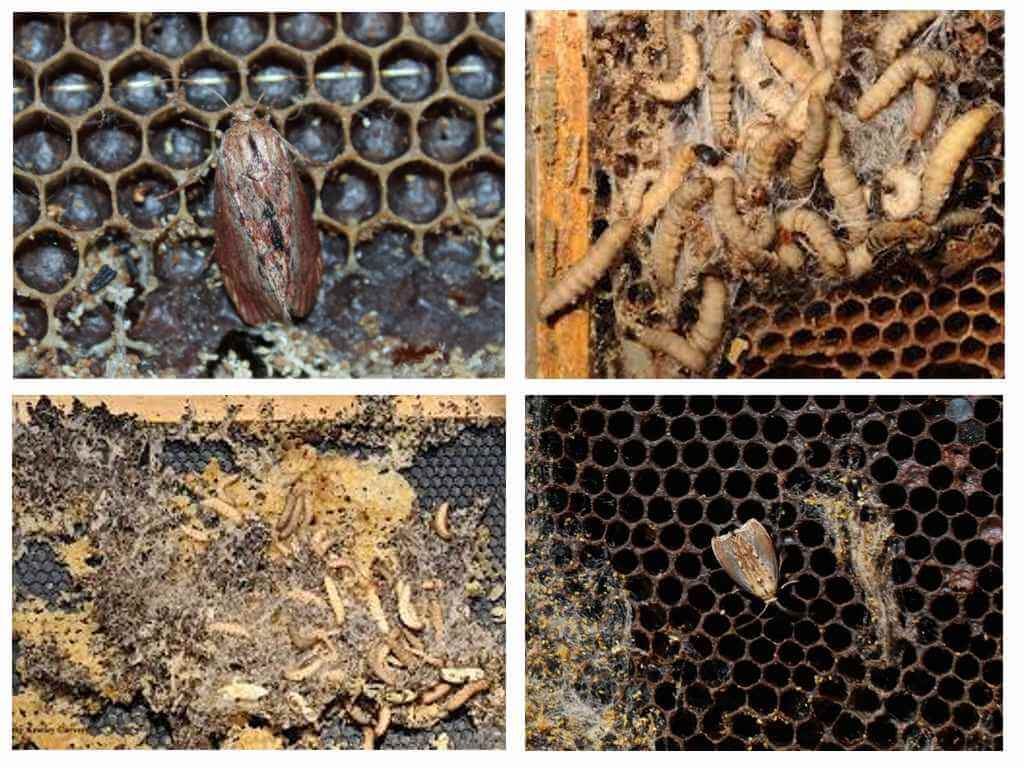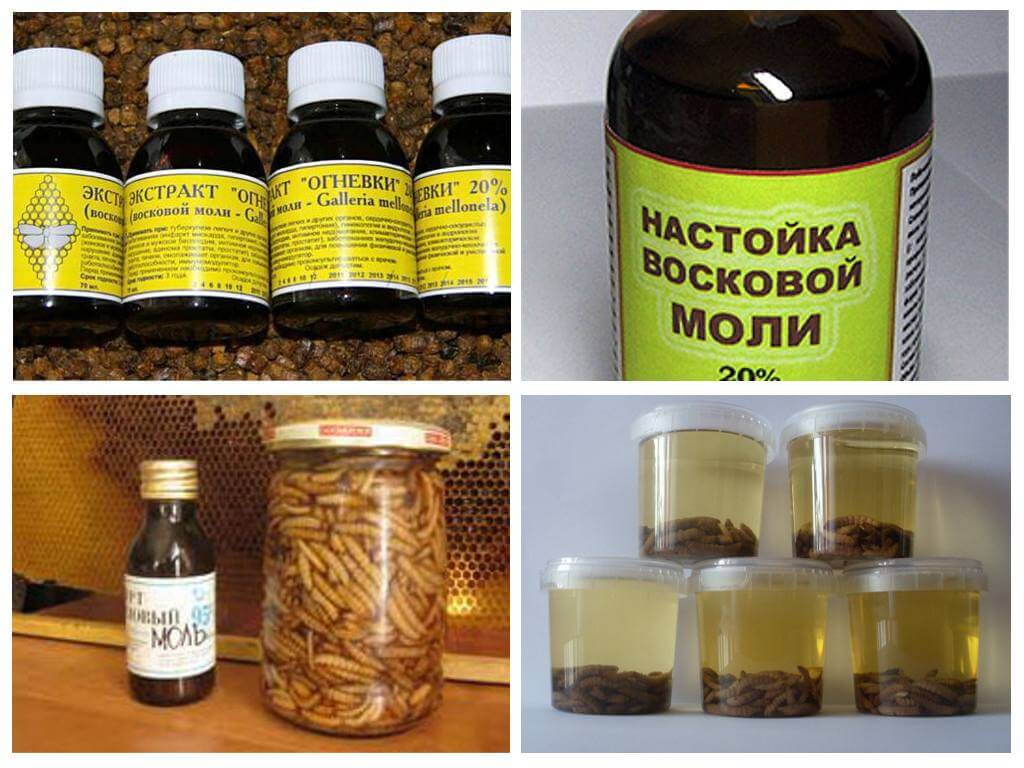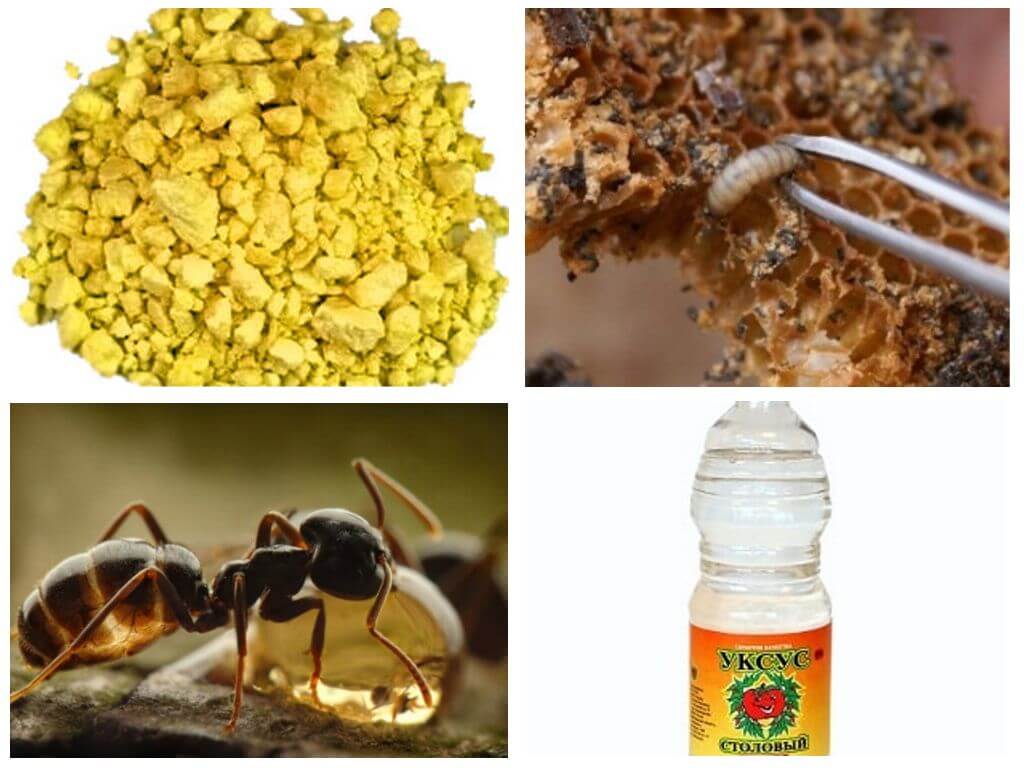Methods of dealing with wax moth
Content
- Wax moth
- Tincture of wax moth
- Wax moth remedies
- Folk remedies for wax moth
Wild bees have many enemies, part of which they are able to fight themselves. But with the artificial content of these beneficial insects, the number of enemies increases significantly, so people must help. The typical representative of the enemy camp is the wax moth. This small individual not only feeds on the contents of the honeycomb, harming the bees, but is also capable of destroying the entire many thousands family.Therefore, the struggle with the wax moth should begin at the same moment as at least one individual has been noticed near the hive.
Oh moth
This tiny insect per month can destroy about 2 g of wax. Absolutely inconspicuous amount, right? But no! Two grams of wax is about 600 processed cells of honeycombs. When calculating damage, it is important to remember that the insect parasite in the hive is not one. In one clutch there may be about 300 eggs. For 14 days of life, the female is able to make about 5 clutches. Having made some simple calculations, it is clear why an urgent need to get rid of such a pest.
An adult insect does not directly harm bees, since it does not even have a mouth apparatus. She lives at the expense of previously accumulated stocks. Its main function and harm - laying eggs in the cracks of the hives.
Important!
Moth loves dry heat, most often it is found in regions located high above sea level.
The fight against wax moths should begin with the study of information about it. So, larvae lay two types of insect in the hive: small and large. Their eggs can be found in the litter at the bottom of the hive, in the crevices of the walls, in the cells and raw materials for wax.In one season, three generations of moths can change. Insect spends winter in the pupal stage.
Over time, eggs appear moth caterpillars. They make their moves in different directions, enveloping their way with cobwebs. The web clogs the honeycomb, not allowing the bees to add honey. These actions destroy cell cells. Gradually, the honeycomb is destroyed, filled with cobwebs and caterpillar feces. The parasite excretions pollute the air, forcing the bees to leave their native hive.
Interesting!
Strong, well-developed families are able to fight single pests on their own. Worker bees simply tear apart the “guest” to pieces. However, not every bee colony has the potential for this level of development.
Beneficial features
Before dealing with the moth wax, it is important to know that not only harm can be obtained from it. The main use of wax moth for a person:
- From the larvae do wax moth tincture and creams for treatment;
- Preparations from moth larvae promote healing of wounds and burns;
- Funds used to treat tuberculosis, bronchitis, heart disease.
If the larval breeding occurs under control,of them, you can make healthy preparations yourself. So, a few larvae can pour a glass of vodka and insist 14 days.
Preventive measures
In order not to think about how to get rid of the wax moth in the hive, it is important to protect it from being hit by the parasite. It is necessary to keep the hive and apiary clean. The bee houses themselves should be neat, serviceable. About the third part of the cells must be replaced annually with new ones. Damaged subject to mandatory destruction.
To get rid of the moth, you can use dry grass, the smell of which the pest does not like. So, in the hive you can put a dried immortelle, peppermint, wormwood, black root and the like.
Important!
Relatively effective prevention is growing on the territory of the apiary. scare wax moth plants: geranium, wormwood, hops, oregano and mint.
Some beekeepers place moth baits in which there is a honey-pepper mixture with water and yeast. In such traps the mole sinks.
If one hive is infected, it is possible to prevent larvae from crawling into neighboring structures by digging out the grooves around the hive and filling it with water.
Fighting moths in the hive
Beekeepers use various methods to combat wax moths, which can be divided into chemical and physical ones. Often used and folk methods.
Physical methods
If the moth is settled in the hives, the struggle must begin immediately.
Infected cells should be placed for 2-4 hours in the cold (below 10 degrees) or for an hour in heat (above 50 degrees). It is necessary to act on all the metal parts of the hive: they are burned with a blowtorch.
Chemical methods
When choosing this method, the beekeeper chooses a chemical agent from a wax moth. In the store, you can choose various options:
- Formic acid. In order to process the hives, it is necessary to allocate a separate site. Each body is treated with 14 ml of acid. After 10 days, the process should be repeated. After that, the cells air for about a week;
- Sulphur dioxide. About 50 g of sulfur are burned per square of a room. It is necessary to process beehives indoors. Repeat the procedure approximately every 2 weeks. Working with this substance requires caution. Processing should be carried out in a respirator, immediately after the procedure to leave the room.Before re-using it, thorough ventilation is required;
- Vinegar. An 80% solution is required in an amount of 200 ml per hive. Act similarly to the method using formic acid. Only the treatment itself lasts 3-6 days, and the entire airing day;
- Ascomolin. Honeycombs remain in the hive, a material is fastened on top of it (about 10 tablets per frame). The case is tightened with a film, left for a day. After 24 hours, honeycombs can be used;
- Paradichlorobenzene - "antimol". This drug is placed between the honeycombs, 150 g per cubic meter. This treatment lasts a week, after which the same number of cells should be ventilated.
On a note!
No less effective and biological preparations of the wax moth, such as Bioseif and Entobacterin.
Folk ways
Very often, beekeepers destroy the wax moth with the help of folk remedies. They are not as effective as chemicals, but understandable, accessible to everyone and safe for bees.
The main principle of action is deterrence by smell. To do this, use:
- Mint;
- Hop;
- Dushitsu;
- Garlic;
- Sagebrush;
- Elderberry;
- Walnut Sheets.
You can use them both in the "cocktail" and in turn, choosing the most effective means.













